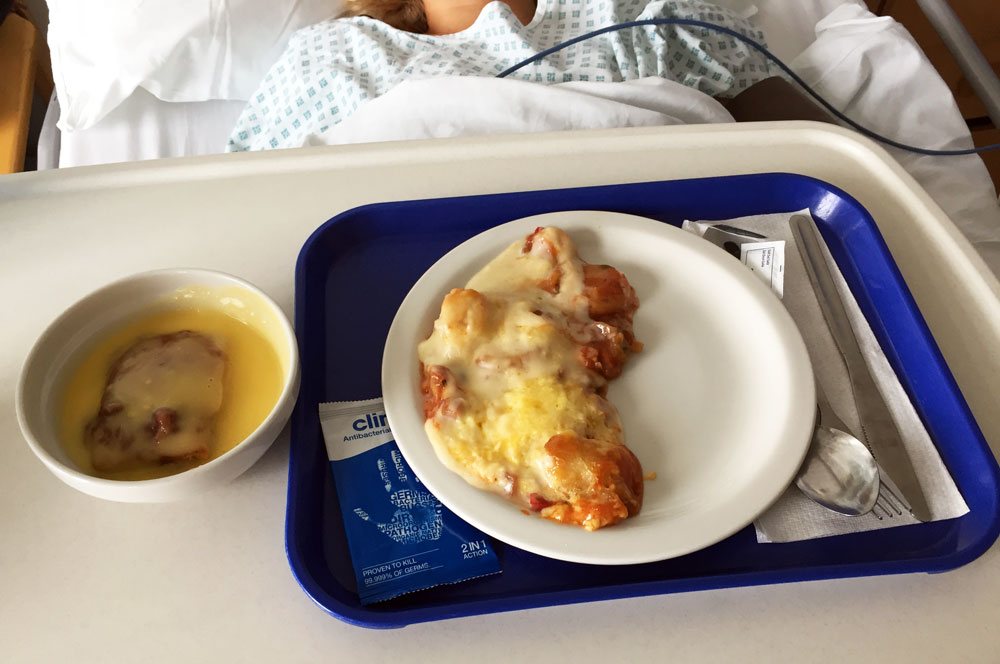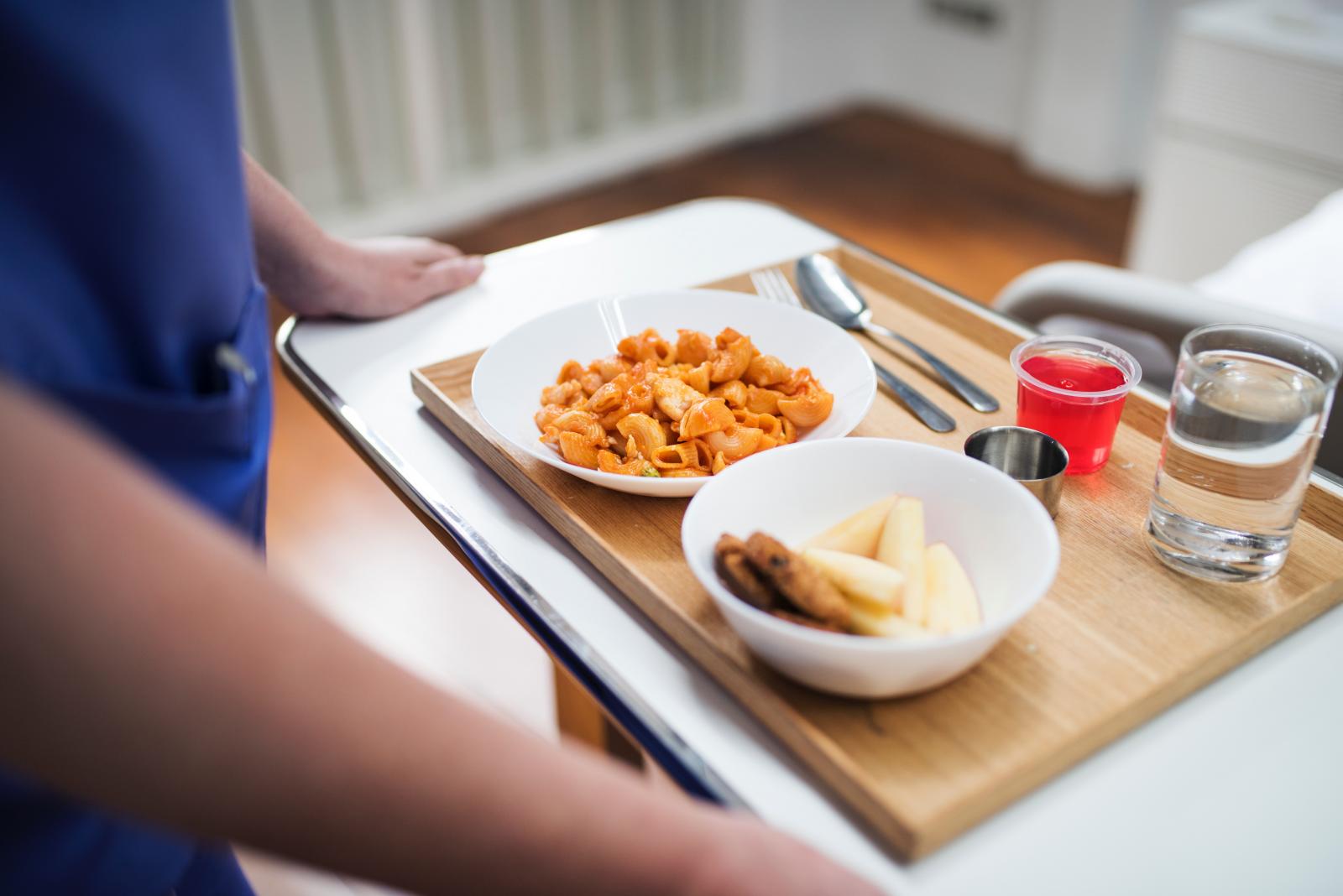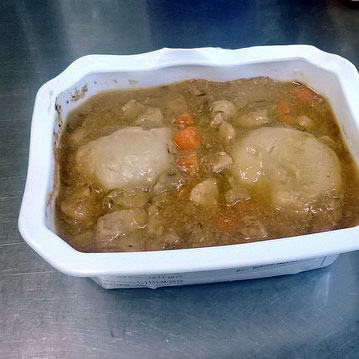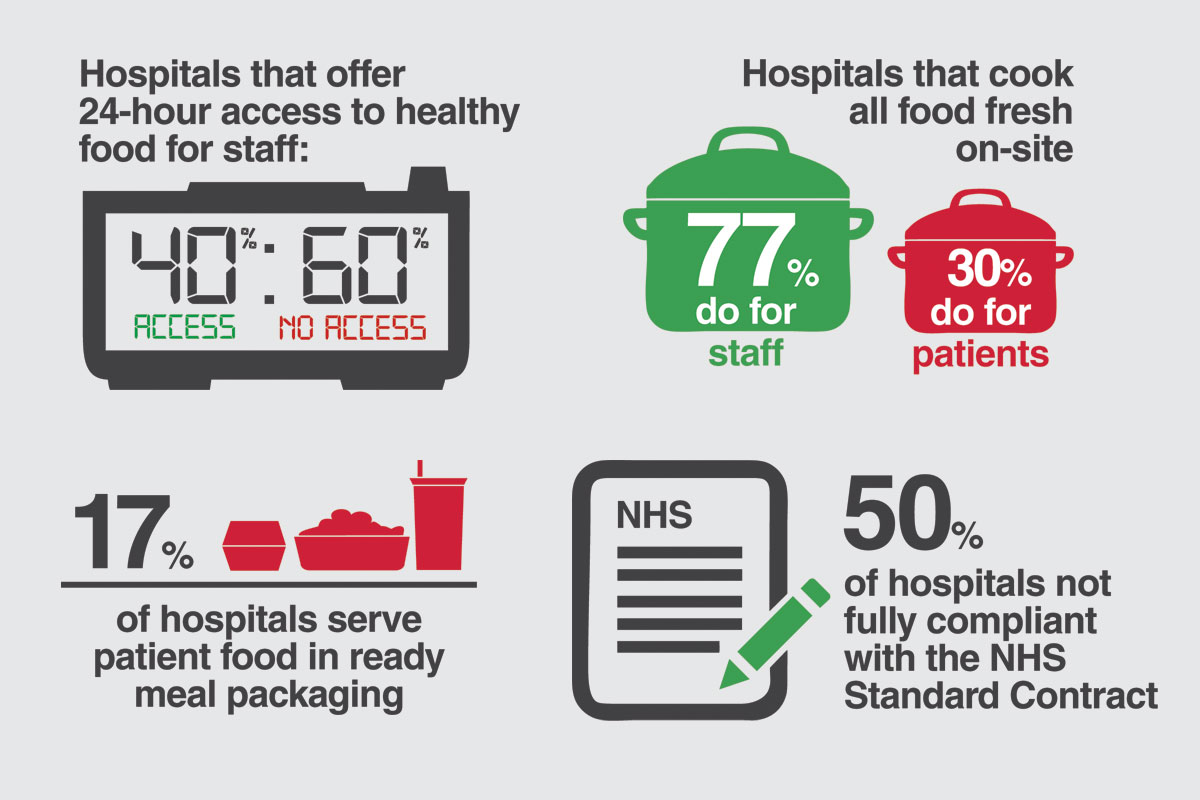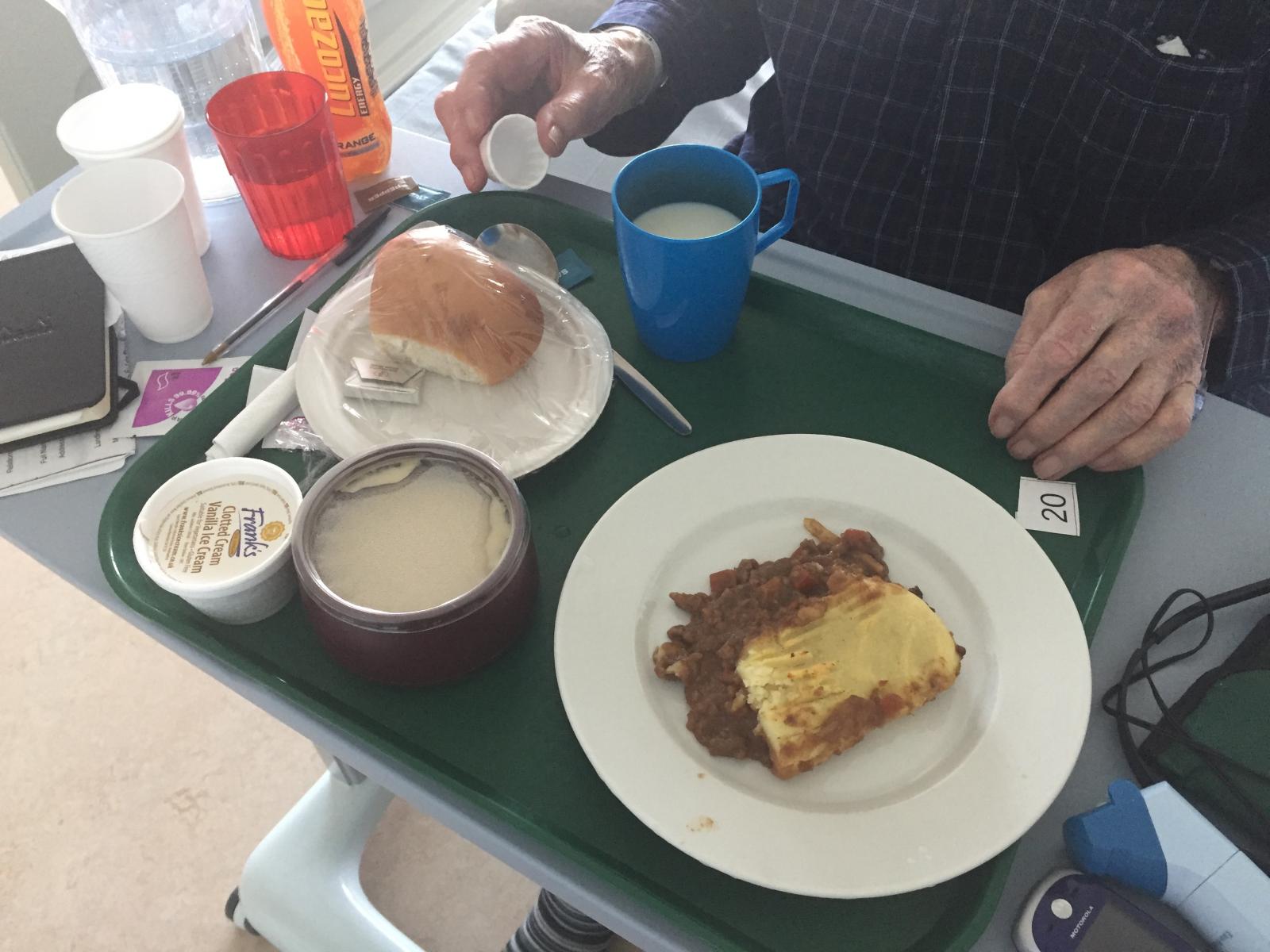My recipe to make our sickening hospital food edible again: Scrambled egg on toast, vegetable soup and fishcakes
Instead, on your tray you find a tired tuna sandwich encased in a plastic container, and a bag of crisps; or worse, a ‘ready meal’ that looks like an unidentifiable plate of grey mush.
No wonder more than 80,000 hospital meals are left uneaten every day and two-thirds of staff admit they would not themselves eat what they serve to patients.
After a needlessly long-drawn-out process of consultation, new recommendations to address this scandal are due to come into force in April. Unfortunately none of it amounts to more than a hill of over-processed beans.
The Department of Health set up a ‘Hospital Food Standards Panel’ in December 2013. That was some progress, but then it invited food manufacturers (including Apetito, one of the biggest suppliers of hospital food in the UK) to sit on the panel.
Food manufacturers, of course, have one aim only: to sell their products. Asking them to advise on a healthy diet is like asking a fox to lock the chicken run.
The panel’s feeble idea is to have minimum food standards built into NHS catering contracts from April.
But have you ever seen a catering contract? Any ‘standards’ (and the panels are hopelessly weak) will be buried in pages of small print that hospital administrators will be too busy to look at once signed.
They seldom say much about food anyway, concentrating more on pricing, delivery and who pays for what investment. And without monitoring and enforcement the contracts’ only purpose will be to cover the backs of NHS Trusts. What a missed opportunity.
Wouldn’t it have been great if Jeremy Hunt, instead of effectively ducking the issue, had announced a hospital food revolution to match the school food one of recent years? Above, another reader photo of unsatisfactory hospital food
Wouldn’t it have been great if Jeremy Hunt, instead of effectively ducking the issue, had announced a hospital food revolution to match the school food one of recent years?
Wouldn’t it have been great if Jeremy Hunt, instead of effectively ducking the issue, had announced a hospital food revolution to match the school food one of recent years, with strong standards enshrined in law, and hospitals given the means and incentives to produce good, nourishing food for patients?
It’s not an easy subject. I’m not for force-feeding ‘healthy’ food down every patient.
An elderly woman at no risk of obesity, maybe in hospital with a broken hip, is unlikely to accept a new diet at 85 when her bad old one has served her well. And why should she?
Yet it should be elementary that hospitals do at least aim to provide healthy, nourishing food. Sadly, most don’t manage that.
Food for patients, arguably the people most in need of good nutrition, is of a worse nutritional standard than that permitted for schoolchildren.
This means, under current rules, a sick child in hospital can be given a meal that would be banned in their school. Why is that considered acceptable?
Someone whose problems stem from obesity should obviously not live on chips or the chocolate brought in by well-meaning visitors. Children with cancer need small portions of tempting, good-for-them food, including the occasional ice cream or jelly. Diet must be tailored to the individual.
What would it take to improve the meals the sick can expect? Ideally, I would eliminate over-packaged, overprocessed junk. Which of us wants the dispiriting experience of having to open a packet to find sustenance when we’re not well?
I’d have a smaller range of healthy, filling options: vegetable soup, fishcakes with chilli chutney, chicken and leek pie or vegetarian curry.
You would be able to order a tempting salad or a scrambled egg on toast if you didn't feel up to a full meal. And I’d make sure everything was cooked fresh and on the spot, possibly even on the ward to cater for patients who cannot eat at scheduled mealtimes. If anyone thinks this is unaffordable they should look at the current waste rates, which are running at 70 per cent in some hospitals.
Under the iniquitous PFI scheme, however, many hospitals entered into long-term deals with caterers, which they can’t get out of.
The result is few hospital kitchens are actually cooking any food. All the kitchen staff do is reheat frozen meals and add the inevitable difficult-to-undo packages of cutlery, sweaty squares of cheese, cheap biscuits, dabs of marge.
The meals themselves are made miles away in a factory from the cheapest available ingredients, delivered frozen, regenerated in the hospital and kept warm in a trolley. No wonder it’s disgusting.
You can’t blame the caterers. In return for 15- or sometimes 25-year contracts, they may have funded factory units to prepare these horrible meals. Often they have borne the cost of converting hospital basements from old-fashioned kitchens to stations for the assembly of food trays.
And the cost of breaking those contracts is beyond the hope of most hospital trusts. But that is what they need to do.
Hospitals don’t like to admit it, but they have a financial interest in as few people eating meals as possible. Even in schools, the more children who take up school dinners the better, because the school is paid for every meal — either by the Government under free school meals legislation, or directly by the parents.
In hospitals, the more meals are served, the more it costs. And if the patients won’t order from the menu, and their relatives buy junk from the hospital shop for them instead, the hospital gains twice: once from saving on that hospital meal, once from its share of the profits from the shop.
Successive governments have wasted more than £50 million of taxpayers’ money on voluntary, often celebrity-led, headline-grabbing initiatives to improve hospital food since 1992.
They didn’t work, of course. Dishing out famous chefs’ recipes to untrained kitchen staff, in hospitals geared to reheating food, was never going to work. And the Hospital Food Standards Panel’s suggestions aren’t going to either.
Legislation is the only answer.
We need a totally independent panel to agree food standards. We also need a staffed and funded body to support hospitals in achieving them.
It will take a heap of money to get out of those existing contracts and equip hospitals for on-site cooking from fresh. And hospital and catering staff will need to be inspired and retrained.
Impossible? No, it’s not. We already have shining examples of NHS hospitals that treat their patients like valued customers, and know that good food is medicine. The Brompton hospital in London is one.
There are some hopeful initiatives. The Soil Association’s Food for Life Catering Mark, so successful in schools, is now being sought by hospitals with a conscience. And they are finding that, though capital investment is a problem, the actual cost of ingredients and labour is no higher than serving unhealthy, over-processed, reheated food.
Let’s hope the demand for change grows. The Royal College of Nursing and the Royal College of Physicians are backing patients’ organisations, environmental and sustainability charities and many others in the campaign for better hospital food. Everyone is, it seems — except the Government.
The Daily Mail
3 March 2015
Published Tuesday 3 March 2015
Better Hospital Food: The campaign represents a coalition of organisations calling on the Westminster government to introduce mandatory nutritional, environmental and ethical standards for food served to patients in NHS hospitals in England.
